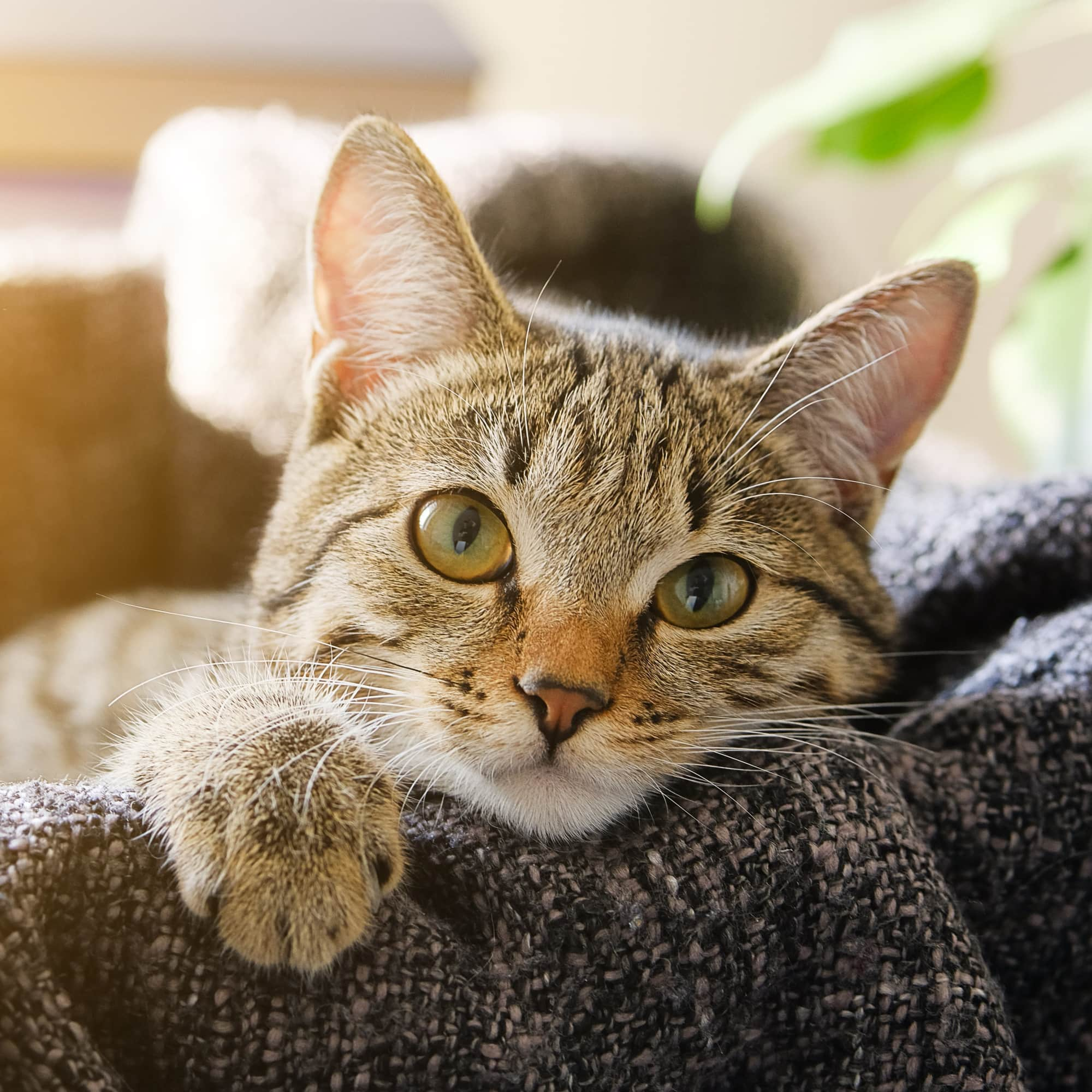
- POPSUGAR Australia
- Living
- Everything You Need to Know About Using Candles, Air Fresheners, and More With Your Pets
Everything You Need to Know About Using Candles, Air Fresheners, and More With Your Pets

It’s no secret that scented products have many benefits: From reviving long-forgotten memories to transforming your mood, scents can do wonders for your wellbeing. However, because cats and dogs have sensitive noses, some scented products can wreak havoc on their sense of smell, said Matthew McCarthy, DVM, founder of Juniper Valley Animal Hospital.
That said, it’s important to remember that not all scented items cause problems. The ingredients, concentration of ingredients, and point of contact all play a role in how likely your pet is to be irritated, poisoned, or experience side effects, Wailani Sung, MS, PhD, DVM, DACVB, a veterinary behaviourist at San Francisco SPCA, told POPSUGAR.
In fact, most scents aren’t toxic via air to either dogs or cats for short periods of time, Dr. McCarthy explained, as long as said products are “intended for one’s self and not overdone to the point where your living room continuously smells like a Bath and Body Works around Christmas.” Of course, there certainly are pets that are chemically sensitive and may have issues with brief exposure.
“If you notice that your four-legged companion is choosing to not hang with you in your scented room, or they disappear after dousing yourself in your scent du jour, they may be sending you a message about your preferred fragrance,” Dr. McCarthy said.
For this reason, POPSUGAR turned to the experts to understand what household scented products can harm your pet and what products are safe, all while keeping you and your home smelling good.
Are Perfume, Incense, or Air Fresheners Toxic to Cats and Dogs?
Breathing in some perfume fragrances, incense, and air fresheners can all cause eye and nose irritation and increased respiratory problems for pets, said Michelle Burch, DVM, a veterinary writer and adviser for Catological. “If perfumes are ingested, they can cause incoordination, neurological signs, and decreased breaths due to the alcohol content,” she said. Likewise, incense can cause gastrointestinal symptoms of vomiting and diarrhea or neurological agitation and incoordination if ingested. If your pet eats an air freshener, Dr. Burch explained, the ingredients may cause toxic symptoms like burns to the mouth and an upset stomach, including vomiting and diarrhea. If you notice your pet nibbling on any of those things, head to the vet ASAP.
Is Potpourri Toxic to Cats and Dogs?
Exposure to potpourri via inhalation, ingestion, or skin contact can cause problems for your pet due to the essential oils and cationic detergents it contains, Dr. Burch said. Because most potpourri doesn’t contain an ingredient list, Dr. Burch recommends you automatically assume any unlabeled potpourri contains ingredients that are toxic to your pet.
More specifically, skin contact with liquid potpourri can cause burns, ulceration, and severe pain while chemicals absorbed through the skin can cause neurologic and liver damage, Dr. McCarthy said. Additionally, liquid potpourri can result in severe tissue necrosis and inflammation of the mouth, esophagus, and stomach if ingested. Seek immediate veterinary care if you’re concerned.
Are Scented Candles and Wax Melts Toxic to Cats and Dogs?
Inhaling of scented candles can cause your pet to sneeze or cough, Dr. Sung said. They can even trigger an asthma attack in cats if they’re sensitive to the ingredients. The same may be said for wax melts if they release volatile compounds in the air, she added. Candles and wax melts pose further health risks if your pet manages to knock the item over and spill it on himself or step on it. “If your cat gets the wax on the fur, it may burn its tongue trying to lick the wax off of its body,” Dr. Sung said.
On the other hand, Dr. Burch explained, if your furry companion ingests the wax of a scented candle, your pet may experience an upset stomach, including vomiting and diarrhea. Head to the vet if this happens.
Are Essential Oils and Essential Oil Diffusers Toxic to Cats and Dogs?
“We know many of the components of many essential oils have some level of toxicity or carcinogenicity,” Dr. McCarthy said, adding that contact is often due to ingestion or skin contact. He further noted that direct skin contact is the most immediately harmful way in which pets are exposed. Because essential oils contain concentrated volatile oils, every route of exposure can be harmful to pets since absorption of these compounds through the skin, gastrointestinal system, or lungs can cause the oral or nasal mucosa to be irritated, Dr. Sung said. When absorbed, the toxins are metabolized through the liver, which can cause injury to the organ.
How Can I Keep My Cat or Dog Safe From Toxic Scented Products?
Dr. Burch advises that pet owners use all scented products in moderation and with caution, and that all scented candles or diffusers be out of reach of your pet so they don’t attempt to take a bite. If you’ve got a cat or dog with a history of respiratory disease or that seems sensitive to fragrances, make sure they have minimal exposure to scents, she said. Moreover, if you choose to use a diffuser in your house, make sure it is a passive diffuser that will not emit oil droplets and is placed in a large, well-ventilated room.
Want to keep your home fresh? Dr. Burch recommends using pet odour products that use enzymes to help eliminate odour and charcoal air purifying bags to absorb foul smells and draw in water to prevent mildew smell from heat and humidity. Because there’s no need to suffer from a stinky home!


